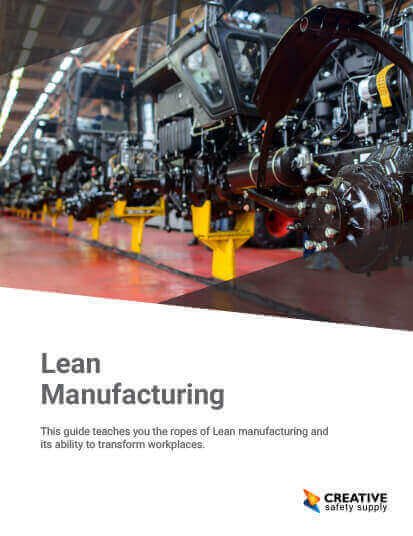
TPS stands for the Toyota Production System, a manufacturing model that aims to eliminate waste and achieve the most efficient methods of production possible. It helps bring organization and improvement, and ultimately enhances the bottom line while respecting workers and meeting customer needs. This system has changed the way production operates around the world; although it originated in vehicle manufacturing, TPS can be incorporated into any type of business.
History of Toyota Production System
TPS was initially developed in Japan at the Toyota Motor Company. It took years of continuous improvement from 1948-1975 in order to achieve the Toyoda family’s ultimate aim: to produce automobiles in the quickest and most efficient way and deliver the vehicle as quickly as possible. Even today, Toyota is still making improvements and the spirit of monozukuri (“making things”) is currently known as “the Toyota Way.” Today, most manufacturers use the Toyota Production System in some manner; once other companies saw that TPS was the methodology behind Toyota’s advantages and competitive strength, the system was quickly adopted in a variety of industries.
TPS + Lean Manufacturing
The strategy of TPS is considered to be one of the foundations of Lean manufacturing methodology. There are two main “pillars” to the system that enable its success: the fundamental concepts of Jidoka and just-in-time manufacturing. Jidoka is translated as “automation with a human touch” and makes sure that when a problem occurs, this is detected and equipment immediately stops to prevent the production of any defective products. Just-in-time manufacturing, also known as JIT, aims to fulfill orders based on real-time demand rather than predicted demand and helps to prevent waste such as excess inventory. Between Jidoka and just-in-time, TPS is able to quickly and efficiently produce vehicles of high quality.
The Toyota Production System also has a central focus on Kaizen, a culture of embracing continuous improvement and respecting all workers, from the CEO of a company to the employees who work the front line. Kaizen encourages workers at all levels to constantly strive to be better and look for small ways to improve processes. By continually striving for improvement, detecting problems, and eliminating waste, TPS was developed over the years to become one of the most famous, and widely used, methods of production.
Similar Questions
- What is the difference between JIT, Lean, and TPS?
- What are Lean terms?
- Which automobile company initialized Lean manufacturing?
- When was Lean manufacturing invented?
- What is the goal of Lean?
- What is the Definition of Lean Manufacturing?
- What is Lean manufacturing?
- What is JIT?
- How can Lean affect the supply chain?

